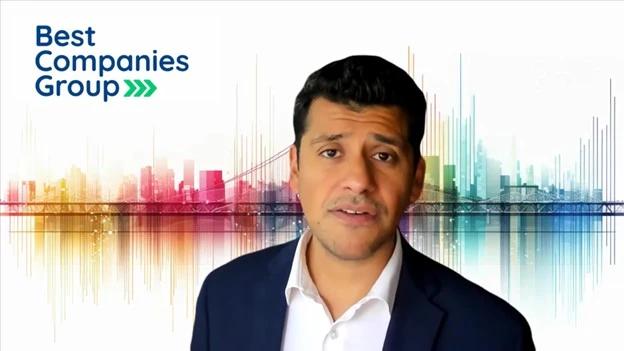Droughts are cyclical by nature and come and go, but the issues surrounding water – usage, efficiency and perception – remain the same.
What’s not cyclical is the fact there are a handful of superintendents and other industry professionals who go above and beyond the call of duty to meet the challenges regulation and legislation sometimes throw against the business of golf course management.
Mark Esoda is definitely one of those guys.
Esoda has been superintendent at Atlanta Country Club, which features a 1965 Willard Byrd design, for almost two decades. For seven years, he and his crew hosted the Bellsouth Classic, an event that historically was the lead-in for the Masters and demanded excellent conditions from the world’s top players.
Esoda has an enviable list of outside accomplishments as well, having worked his way through the chairs of the Georgia GCSA board and served on numerous committees for his alma mater, the University of Georgia. He’s even found time to keep active as a Boy Scout leader and pursue his passion for scuba diving.
That would be enough for most of us, but for the past seven years, Esoda also has been up to his neck – figuratively – in water. His involvement with the GGCSA board led to a seemingly innocuous committee appointment on the state golf industry’s water task force in 2001. Since then, Esoda’s commitment to the profession and his keen sense of marketing and communications has driven him to become a state, regional and national champion for issues relating to golf and its lifeblood.
Esoda has a pile of awards and honors – including GCSAA’s Excellence in Government Relations – to show for his work, but he seems most proud that it has made a difference. State regulators are starting to listen and learn. Despite the severest drought in a half century last year, the golf industry managed to build a reputation as a leader in efficiency and one of the models for other user groups.
But when push comes to shove, golf is still a target for legislators and environmental groups, and its use of water is still largely misunderstood by the public. Esoda and others, including the newly formed Water Impact Alliance, are trying to change that, but it’s an uphill climb. As Esoda says, “When the issue comes down to watering a golf course versus having water for little Timmy’s toothbrush, they’re going to cut us off.”
How’s the water situation in Georgia right now?
It’s good. We’re mostly green. We’re still in a level-four drought, but the state has eased off the greens-only restriction. The Georgia GCSA did an awesome job of communicating and negotiating to get us to this point.
How did you get them to reconsider the restrictions?
Even last year, when we were restricted to irrigating on odd/even days, there was a temptation to water even if we knew it wasn’t necessarily the best thing to do because of the way the regulations were structured. The regulators came out with the rules before we had a chance to educate, communicate and negotiate with the state. When we started the task force, we found out there’s a huge amount of education that needs to be done with regulators. We told them from day one scheduling irrigation of odd/even days didn’t conserve. They didn’t allow us to manage water as effectively as we could.
Over time, we were able to find the right people who understood that plants don’t work on that basis. They don’t behave like industrial plants. I have to give credit to Carol Couch, the director of the Environmental Protection Division of the Department of Natural Resources. She was the most important person who really listened to us and understood that we used water wisely and did far more to conserve than most users. They were shocked to learn the effort we made, and they finally started to get it. We reached an agreement that required 75 percent of our member courses to follow the best management practices, and we’re now at 96-percent compliance. This is more than half of the courses in Georgia. Even the nonmember state-owned courses have joined the program.
How did you get up to your neck in water issues during the past few years?
Wade Thomas was president of the GGCSA in 2001, and it was finalizing the rules. He asked me to come to a meeting for the urban agriculture group, along with professor Gill Landry and other green industry people. Most of the green industry was exempt … except golf. They thought we were too much of a political hot potato to give exemptions to. I went back and told my green committee, and they basically said, “So, what are you doing about it?” So I helped to get a coalition started with other state chapters of the CMAA, PGA, NGCOA, etc. We did an economic analysis and developed information to give the government folks. We hired a lobbyist, and I and others joined any committee we could.
Hiring a lobbying firm is a big step for a local association. Do you have advice for other chapters?
It’s not cheap to hire a lobbyist, but we knew if we lost, we’d lose our water. We chose Georgia Link because they have great connections and credibility. We chose wisely.
How effective have you been trying to get superintendents to lobby the influential members at their clubs?
Some members are good at bringing players into the process. Some aren’t. The bigger thing was having members contact their local representatives and pass along the information.
What perception issues have you encountered as the golf guy in the process?
There was a water conference at the University of Georgia – basically me and 600 regulators and representatives of other industries. There was a guy there from a brewing company who threw everybody else under the bus. He stood up there and called beer food. So I said, if he can do that, we need to be more aggressive.
There’s no doubt we’re singled out as abusers. But our message is so good, we’ll win in the long run. And it’s not like you’re a leper. I’ve made a lot of friends through the process and many people have come to view us positively. We did it proactively and voluntarily. They like that. The governor’s commendation is proof of that. However, our public perception is still bad.
I’ve been on the speaking circuit in a bunch of other states facing these same issues. It’s all throughout the country.
Tell us about the new Water Impact Alliance.
It looks at the most effective way to get our message out to the legislators and the public. I give credit for getting the WIA going to Kathy Conard from Aquatrols. She reached out to us last year and said the company was interested in helping us in Georgia. We’ve been meeting to discuss the biggest issues, and it all seems to come down to public relations. The average person sees us as the bad guys. Kathy and Aquatrols have spent a lot of time learning the issues and helping us develop a plan, unify it and get the message out through a PR firm we’ve hired. It’s been unbelievable.
It jazzes me that if we can get the support, we have professionals that can help us do the right thing. We’ve been so good at preaching to the choir. Now we can finally get our message outside our business and do it right.
What’s the core message?
My message is different. I believe you can be good water stewards and not kill plants. I heard a story the other day about a couple who were “going green” out in California and letting their lawn die. That’s crazy. The natural color of green is green. People need to understand that we monitor our systems for efficiency and have people on staff who fix leaks and other problems daily. Compare that to the city of Atlanta, which loses 30 percent of the water it pumps daily because of leaks.
We have a lot of expertise to offer. We’re helping to lead the way toward a future where there’s an effective, efficient management system where we can have enough water for everybody. It’s like Goldilocks and the Three Bears – not using too much water, not using too little. Our goal is to get it just right. We can be a model for everyone.
You also have a “real” job. What’s going on at the club?
Our No. 1 issue is labor. I’ve started turning stuff (speaking, committees, etc.) down so I could be around here more. I’ve had fantastic help and long-term employees. The problem is finding seasonal help with the right qualifications. Everybody on our staff pitches in, but we’re having to get more creative. We’re going to flex hours and are using students and retired folks. We’re getting by but it’s not easy.
Do you see changes in the work ethic of the young folks you hire?
I’m old school. I love to get up at 5 a.m. and go to work. My sense is that young people today don’t mind working, they just mind when they’re working. That’s why we’re trying flexible hours and other things to make it more palatable for them.
What message do you try to get across to the students you talk to?
I talked to the UGA turf club this spring, and my topic was supposed to be business etiquette and management, but it quickly became a discussion about hours and pay scales. I tried to reinforce that they’re going to have to apprentice. Your fastest way to the goal of being a superintendent is to put in the hours. There still are really good young folks out there. I have a couple interning right now. They haven’t had enough thrown at them yet to learn how to duck. The ones that get it will go far, but they’re fewer and farther in between.
How do you balance all the professional stuff with your family’s needs?
I’ve been married for 23 years to my college sweetheart, Marty. We dated for six years before we got married, but the first six months were still really difficult. She’d ask, “Why are you never home?” which was pretty ironic considering she was a flight attendant. Now, if I’m hanging around the house, she’ll say, “What are you doing here?”
My kids are awesome. My son’s 18 and attending Georgia Tech. He’s an Eagle Scout and won a GCSAA Legacy Award and the Garske scholarship. My two daughters are in high school, and both of them are great students who are involved with tons of stuff such as travel soccer and church missions. We’ve really been blessed by having great kids who didn’t seem to mind that dad has this job that keeps him away all the time.
What kinds of challenges does the Georgia GCSA face?
We’ve had great leadership and executive staff who are focused on the needs of the average member. You can’t forget that. We had membership standards long before the national, but the idea was to enhance the value membership offers to our employers. We were extremely lucky to have guys such as Bill Womac, Randy Nichols and Ken Mangum – really dynamic folks who’ve mentored the other leaders and who see the worth in younger folks and bring them up. A good example is Richard Staughton, who’s now taking over most of my task-force duties from me.
Final thoughts?
We’re always so good at talking to ourselves, but we’ve done a poor job of getting the message out to the public. There’s so much good stuff being done out there – usually by one individual who burns with a passion for the profession – but, until we’re all doing that, we’ll still be doomed to be perceived as bad guys. We have to change that or golf will always be on the outside looking in when it comes to water. GCI

Explore the September 2008 Issue
Check out more from this issue and find your next story to read.
Latest from Golf Course Industry
- Editor’s notebook: Green Start Academy 2024
- USGA focuses on inclusion, sustainability in 2024
- Greens with Envy 65: Carolina on our mind
- Five Iron Golf expands into Minnesota
- Global sports group 54 invests in Turfgrass
- Hawaii's Mauna Kea Golf Course announces reopening
- Georgia GCSA honors superintendent of the year
- Reel Turf Techs: Alex Tessman





